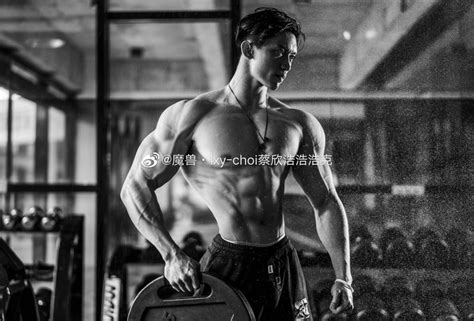播放关于健美运动员的英文
Title: Introduction to a Bodybuilder
Introduction:
A bodybuilder is an individual who engages in the sport of bodybuilding, which focuses on developing and sculpting the muscles of the body to achieve a desired physique. Beyond physical appearance, bodybuilding requires discipline, dedication, and a comprehensive understanding of exercise science, nutrition, and supplementation. Let's delve into the details of what it takes to be a successful bodybuilder.
Physical Training:
Bodybuilders undergo intense training regimes tailored to their specific goals. These workouts typically involve a combination of resistance training, cardiovascular exercise, and flexibility training. Weightlifting, using free weights and machines, forms the core of their regimen, targeting different muscle groups on different days to ensure balanced development. Highintensity interval training (HIIT) is often incorporated to improve cardiovascular health and burn fat while preserving muscle mass. Additionally, flexibility exercises like yoga or stretching routines help maintain mobility and prevent injuries.

Nutrition:
Nutrition is a cornerstone of bodybuilding success. Bodybuilders meticulously plan their diets to support muscle growth, performance, and recovery. A typical bodybuilding diet is high in lean proteins, complex carbohydrates, healthy fats, and plenty of fruits and vegetables. Protein intake is crucial for muscle repair and growth, so bodybuilders often consume proteinrich foods like chicken, fish, eggs, and protein supplements. Carbohydrates provide energy for intense workouts, while fats support hormone production and overall health. Additionally, bodybuilders pay close attention to meal timing and portion sizes to optimize nutrient absorption and fuel their training sessions effectively.
Supplementation:
Supplements play a significant role in many bodybuilders' routines, helping to fill nutritional gaps and enhance performance. Common supplements include protein powders, creatine, branchedchain amino acids (BCAAs), glutamine, and preworkout formulas. These supplements can aid in muscle recovery, increase strength and endurance, and support overall health. However, it's essential to approach supplementation wisely and consult with a healthcare professional to ensure safety and effectiveness.
Rest and Recovery:
Rest and recovery are integral components of any bodybuilder's routine. Muscles grow and repair during periods of rest, so adequate sleep is crucial for optimal performance and progress. Bodybuilders often incorporate rest days into their training schedules to allow their bodies to recover fully from intense workouts. Techniques such as massage, foam rolling, and contrast baths can also help alleviate muscle soreness and improve recovery time.
Competition:
Many bodybuilders compete in physique competitions to showcase their hard work and dedication. These competitions typically involve posing routines to display muscle definition, symmetry, and overall presentation. Bodybuilders are judged on criteria such as muscle size, proportion, definition, and stage presence. Preparing for competitions requires strict dieting, meticulous training, and attention to detail in posing and presentation.
Conclusion:
Being a successful bodybuilder requires more than just lifting weights; it demands discipline, commitment, and a holistic approach to training, nutrition, and recovery. Through dedicated effort and perseverance, bodybuilders sculpt their bodies into works of art, inspiring others with their strength, determination, and passion for the sport.











